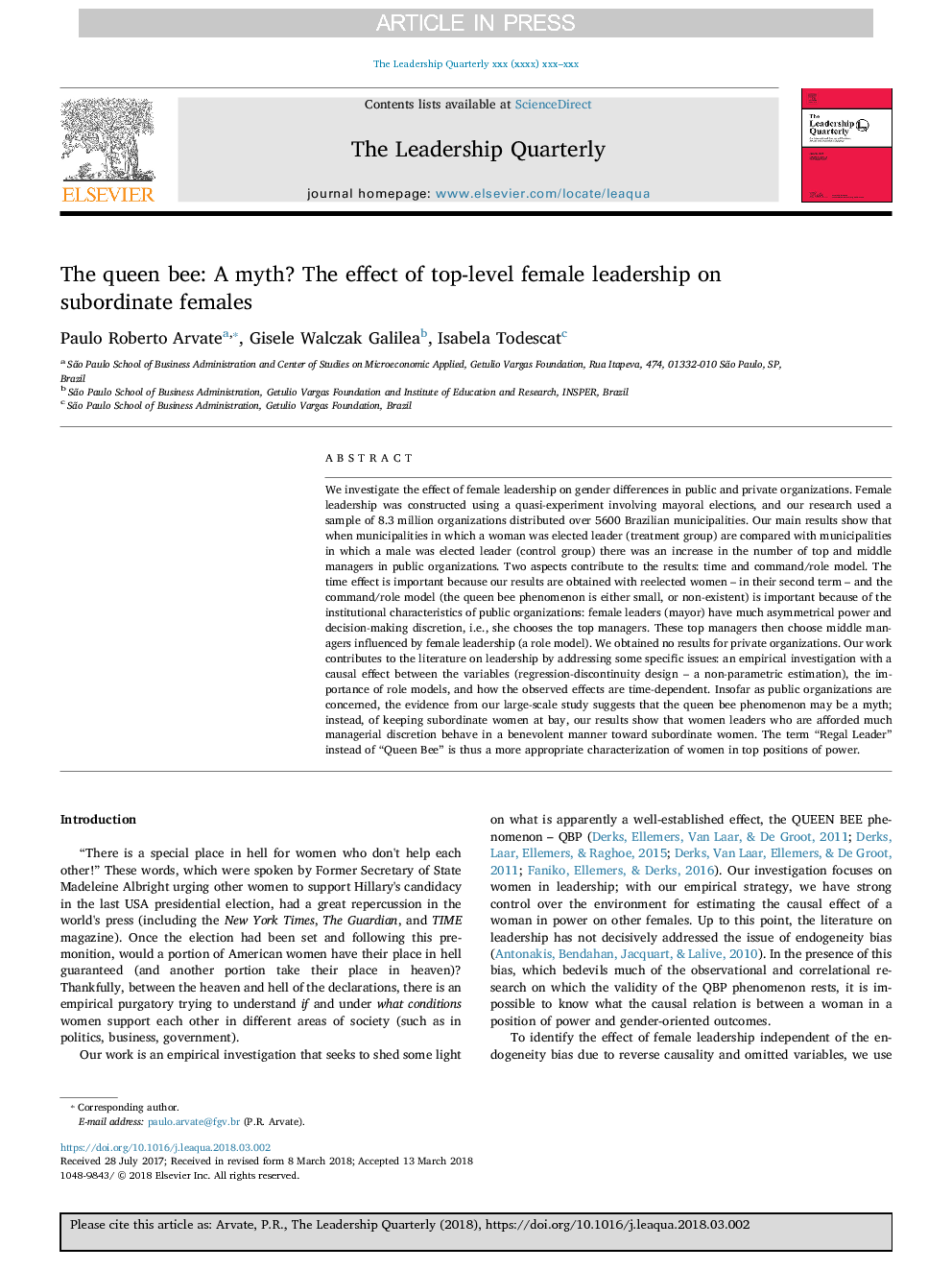ترجمه فارسی عنوان مقاله
زنبور ملکه: اسطوره؟ تاثیر رهبر زن در سطح بالا بر زنان فرعی
عنوان انگلیسی
The queen bee: A myth? The effect of top-level female leadership on subordinate females
| کد مقاله | سال انتشار | تعداد صفحات مقاله انگلیسی |
|---|---|---|
| 161665 | 2018 | 16 صفحه PDF |
منبع

Publisher : Elsevier - Science Direct (الزویر - ساینس دایرکت)
Journal : The Leadership Quarterly, Available online 12 April 2018

